Folliculitis
Superficial Folliculitis affects the upper part of the hair follicle and can cause clusters of red bumps, pus-filled blisters, red and/or inflamed skin, as well as itchiness or tenderness.
Deep Folliculitis is a more serious type of folliculitis that starts deeper in the skin surrounding the hair follicle and thus can infect the whole hair follicle. Deep folliculitis can manifest as a large swollen bump and pus-filled blisters and can cause pain and possible scarring once the infection has disappeared.
If you're dealing with the discomfort of folliculitis, our trusted Cumberland Skin providers offer specialized care, providing effective solutions to alleviate symptoms and prevent recurrence. Schedule an appointment at Cumberland Skin for a comprehensive evaluation and personalized folliculitis management to promote healthy skin.
Examples of Folliculitis
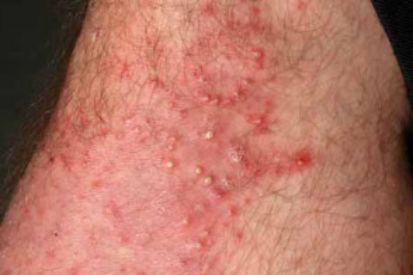
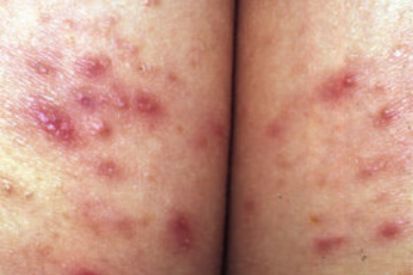
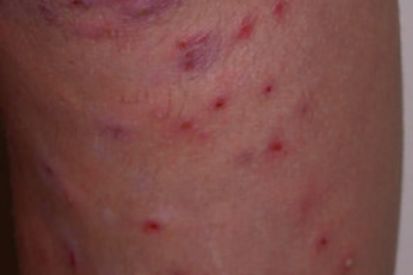
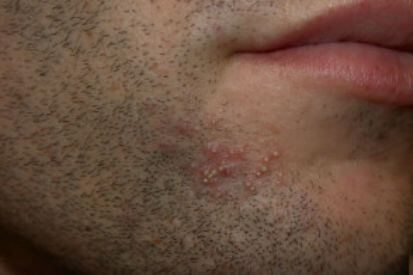
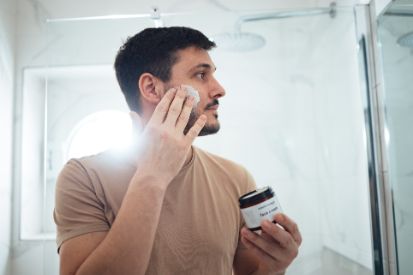
What are the Symptoms of Folliculitis?
Folliculitis can cause discomfort and irritation, affecting areas where hair follicles become inflamed or infected. If you're experiencing the following folliculitis symptoms, Pinnacle Dermatology can offer expert care to diagnose and treat a hair follicle infection.
- Itchy or painful bumps around hair follicles
- Clusters of red bumps or pus-filled blisters
- Red, inflamed, or tender skin
- Persistent itchiness or soreness
- Possible scarring after the infection clears
Causes of Folliculitis
Certain lifestyle factors and skin conditions can increase the risk of developing this hair follicle infection, leading to discomfort and potential complications. Understanding these causes is essential for preventing folliculitis and reducing flare-ups. Common causes of folliculitis may include:
- Shaving, which can cause irritation or ingrown hairs
- Friction from tight clothing
- Excessive sweating, especially in humid conditions
- Skin inflammation from underlying conditions like eczema
- Skin injuries that allow bacteria to enter the follicles
- Non-breathable materials, such as adhesive tape on the skin
- Bacterial, viral, or fungal infections
How to Prevent Folliculitis
- Gentle Shaving Techniques: Use a sharp, clean razor and shave in the direction of hair growth with minimal pressure to reduce irritation.
- Maintaining Skin Hygiene: Cleanse the skin regularly with mild, fragrance-free soap to remove potential irritants and bacteria.
- Avoiding Tight Clothing: Wear loose, breathable fabrics to minimize friction and allow the skin to breathe.
- Proper Wound Care: Treat cuts, scrapes, or skin injuries promptly to prevent bacterial infections that may lead to folliculitis.
- Hydration and Moisturization: Keep the skin well-hydrated with dermatologist-recommended moisturizers to maintain a strong skin barrier.
Folliculitis FAQs
Diagnosis is usually based on your dermatologist's examination of the affected skin. In some cases, a culture or other tests may be conducted to identify the specific microorganism responsible.
Folliculitis itself is not typically contagious, but the microorganisms that cause it may be spread through direct contact. Practicing good hygiene and avoiding shared items can help prevent the spread of infection.
Yes, certain activities or professions that involve prolonged exposure to hot and humid environments, friction, or contact with contaminated surfaces may increase the risk of developing folliculitis. Athletes, individuals who shave frequently, and those working in certain occupations may be more susceptible.
Yes, folliculitis can occur on any part of the body where hair follicles are present. Common areas include the face, neck, chest, back, buttocks, and thighs. The location and severity of folliculitis may vary among individuals.
Moisturizers can play a role in managing folliculitis, but their effectiveness may vary depending on the underlying cause and type of folliculitis.
In some cases, folliculitis can be exacerbated by dry or irritated skin. Using a gentle, non-comedogenic moisturizer can help maintain skin hydration and reduce irritation, potentially alleviating some symptoms associated with folliculitis. Moisturizers can also aid in supporting the skin's barrier function, which may contribute to overall skin health and help prevent further irritation of hair follicles.
However, it's important to note that while moisturizers can provide relief from dryness and mild irritation, they might not directly treat the infection or underlying cause of folliculitis. If the condition is due to a bacterial or fungal infection, using a moisturizer alone may not resolve the issue, and specific treatments, such as antibiotics or antifungal medications, may be required as prescribed by a dermatologist.
For individuals dealing with folliculitis, especially in cases where moisturizers offer some relief, it's advisable to opt for fragrance-free and non-comedogenic moisturizers to minimize the risk of further irritation or clogging of hair follicles. Consulting with a dermatologist is crucial to determine the appropriate skincare routine and treatment plan tailored to the specific type and cause of folliculitis for effective management.
From Our QualDerm Family of Brands: Skin Moisturizing Tips
Folliculitis Treatment
Common treatment modalities include:
- Topical Antibiotics or Antifungals: For mild cases, we may prescribe topical antibiotics or antifungal creams to target the bacterial or fungal infections causing folliculitis.
- Oral Medications: In more severe or recurrent cases, oral antibiotics or antifungal medications may be recommended to treat the infection from within.
- Corticosteroids: Topical or oral corticosteroids help alleviate inflammation, reducing redness and itching associated with folliculitis.
- Laser Therapy: Our dermatologists may use laser therapy to target and destroy hair follicles, preventing further outbreaks of chronic or recurrent folliculitis.
Related Blog Posts
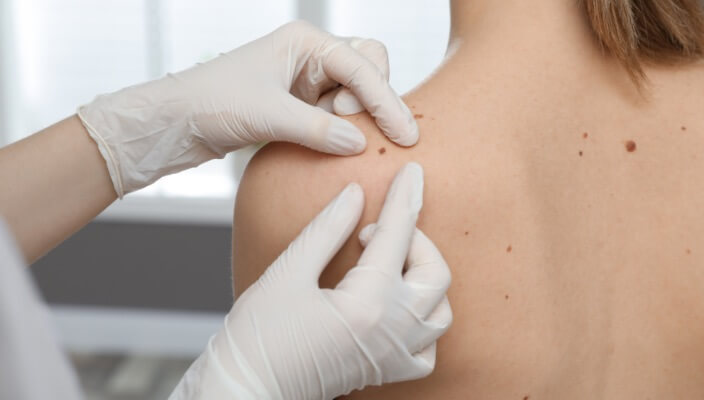
- General Dermatology
- Skin Exams
Preparing for your first dermatology appointment is important because it ensures everything goes as smoothly as possible and that your doctor is up-to-date on the status of your overall health and wellbeing. Here are our expert tips.
Read More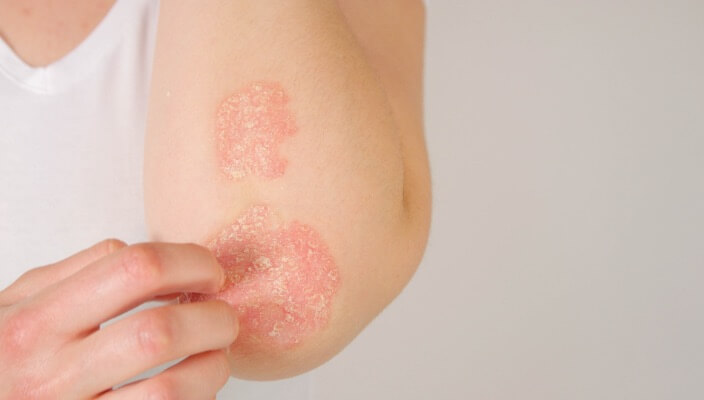
- General Dermatology
- Chronic Skin Conditions
Learn the differences between dry skin, eczema, and psoriasis, their distinct characteristics, and potential triggers. Gain valuable insights into identifying symptoms and seeking appropriate treatment to effectively managing these common skin conditions.
Read More
- General Dermatology
- Cosmetic Treatments
Explore the revolutionary world of laser hair removal and uncover the science behind this popular cosmetic procedure. Learn how laser technology targets hair follicles, providing long-lasting results and smoother skin, making unwanted hair a thing of the past.
Read MoreFeatured Products
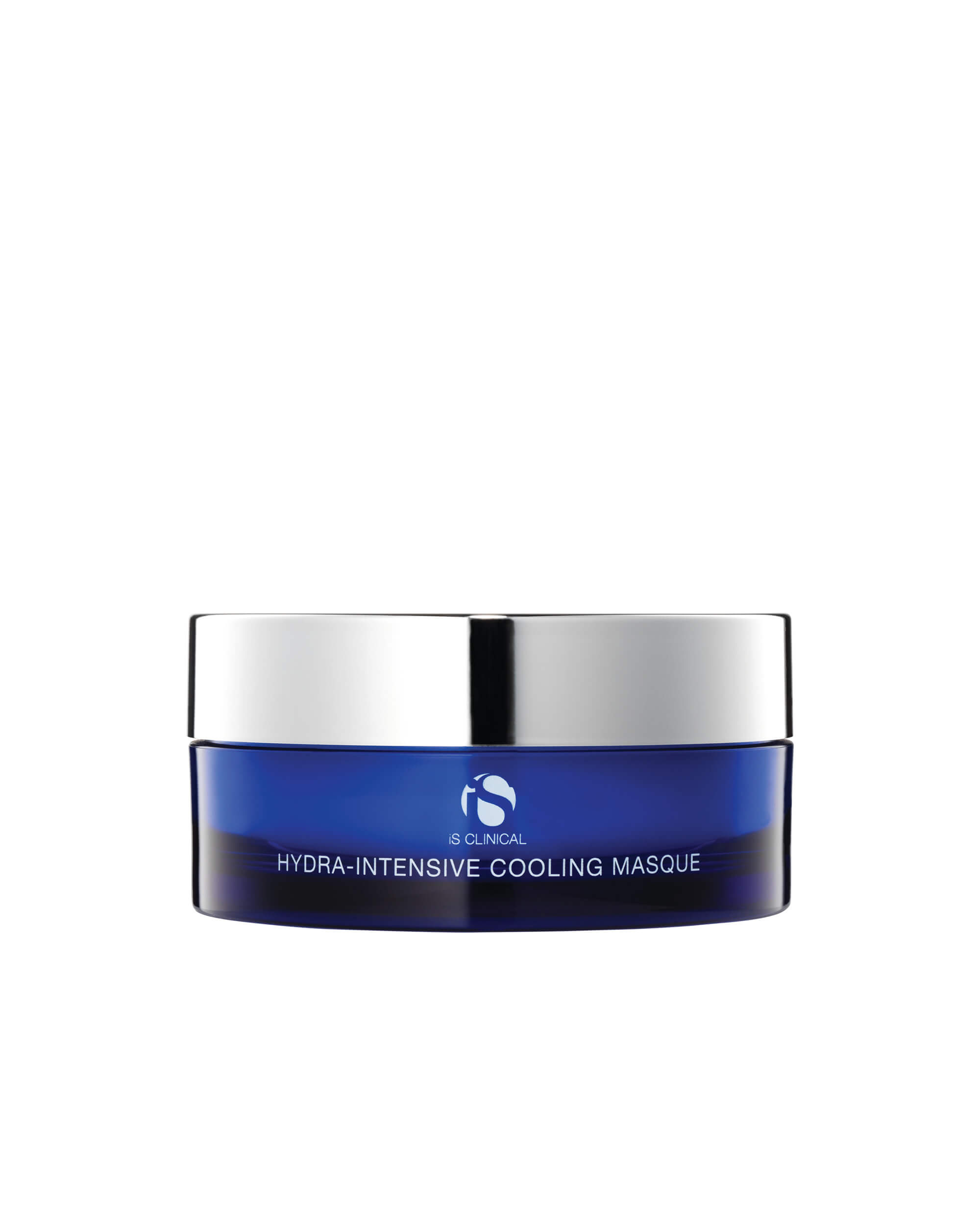
iS Clinical Hydra-Intensive Cooling Masque
Hydra-Intensive Cooling Masque is a rich, luxurious cooling treatment designed to reinvigorate, refresh, and provide soothing hydration. This professional strength formula features natural botanical antioxidants Centella Asiatica, Resveratrol, Green Tea, Aloe Vera, and Rosemary Extracts, which are perfectly balanced with botanically sourced Hyaluronic Acid – one of nature’s most powerful hydrators. Skin will appear luminous, fresh, and hydrated. For skin that is irritated and sensitive (even after sunburn), this lightweight gel masque helps nurture and quench dry skin with a cool burst of refreshment.
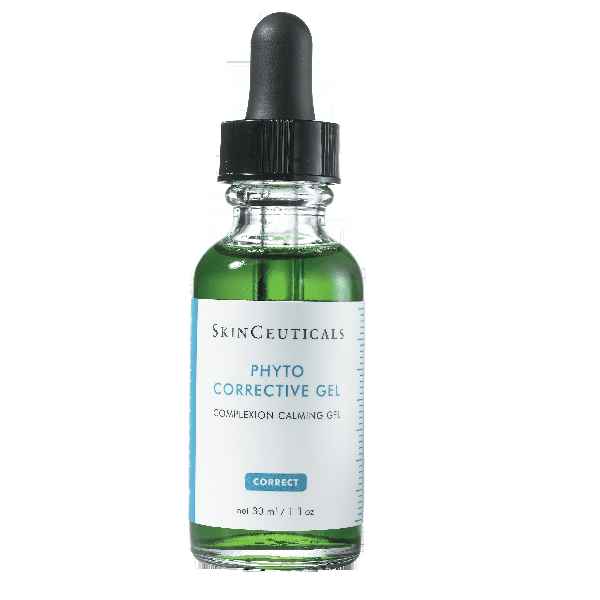
SkinCeuticals Phyto Corrective Gel
A hydrating, soothing gel serum with botanical ingredients ideal to calm and hydrate skin while improving visual redness. 1 fl oz / 30 mL


